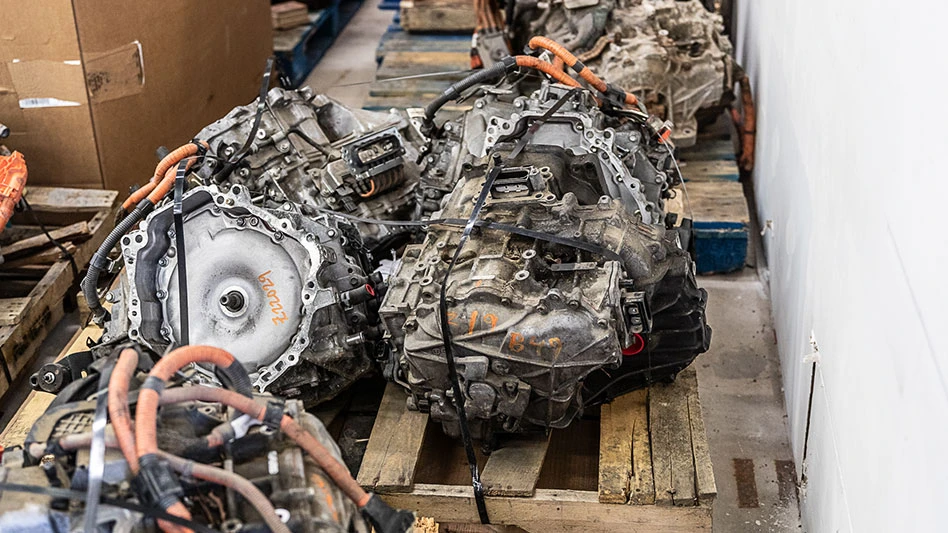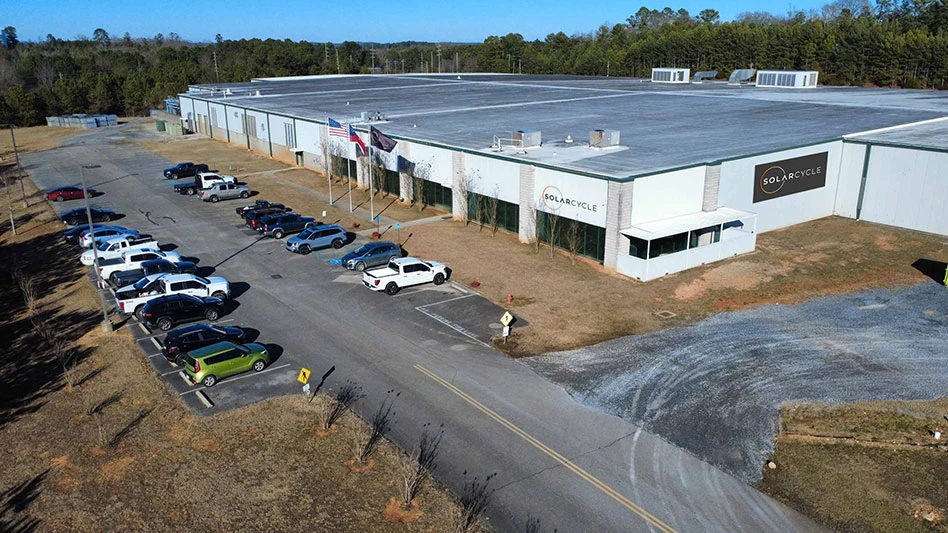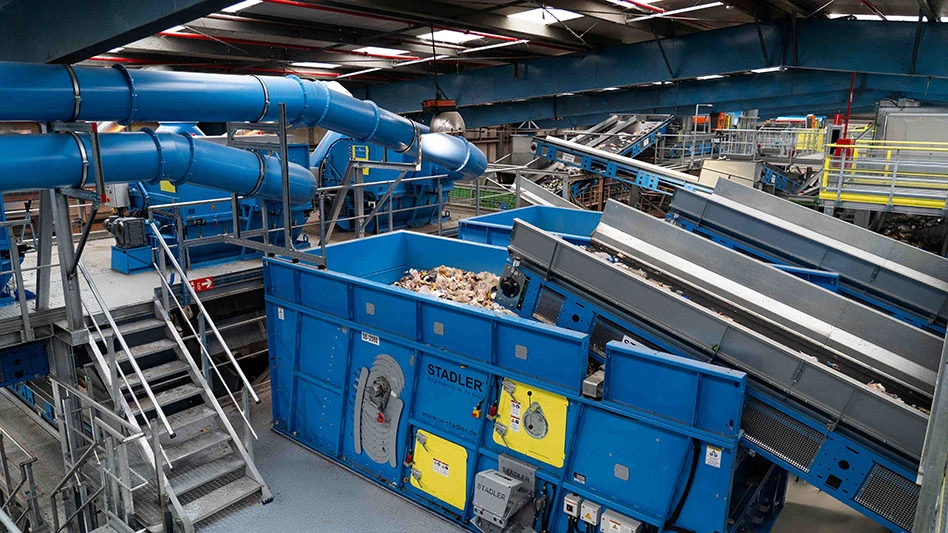
tippapatt | stock.adobe.com
Specialty materials company Eastman, Kingsport, Tennessee, is partnering with a pair of brands on diverse recycling projects.
One partnership involves Vancouver-based textile sustainability company Debrand, where the two are developing a circular lanyard project that will debut at this year’s Sustainable Fashion Forum in Austin, Texas, April 17-19. Elsewhere, Eastman is collaborating with Belgium-based service ware and food packaging provider deSter to create reusable inflight drinkware for the airline industry.
Circular lanyard project
According to Debrand, its partnership with Eastman aims to demonstrate the circular textile process for the wider apparel industry by applying intentional design of conference lanyards to enable the product’s reuse and recycling at its end-of-life. The ultimate goal is to reduce the environmental impact of conference lanyards by diverting them from landfills.
“While textile recycling has been integral to our lanyard project in the past, we recognize that true progress lies in embracing the waste hierarchy,” says Lina Londono, vice president of sustainability and solutions and Debrand. “By prioritizing reuse, we not only reduce our environmental footprint but also foster a culture of mindful consumption and innovation. Our commitment to evolving our strategy to evergreen lanyards reflects our dedication to sustainability principles and ensures that we’re continually striving for more impactful solutions.”
RELATED: Eastman selected by DOE for investment in US molecular recycling facility
Debrand will provide lanyards designed with “circular principles” that will be sanitized for reuse at future events, and damaged or contaminated lanyards will be recycled by Eastman. The lanyards are made with 100 percent polyester for durability and will be collected and preprocessed by Debrand at the end of the conference.
In a news release, Brittany Sierra, founder and CEO of the Sustainable Fashion Forum, says her vision for the event has always been to inspire transformative change within the industry, adding that Debrand’s lanyard project with Eastman exemplifies the kind of collaborative solutions the event strives to showcase.
“By reimagining the lifecycle of our conference lanyards, we’re not only reducing waste but also igniting conversations about the sustainable practices of events and demonstrating the power of collaborative action in driving meaningful change within event planning and execution,” Sierra says. “This initiative serves as a microcosm of the broader shift towards sustainability within the fashion industry, showcasing how small yet impactful changes can drive significant progress towards a more sustainable future.”
Debrand says it selected Eastman as a partner to demonstrate how a collaborative ecosystem within the later stages of the supply chain can drive the design, production, distribution, preprocessing and circulation of circular products available in large quantities. Through Eastman’s carbon renewal technology, the company can break down hard-to-recycle plastic and textile scrap to its molecular level to create new products, reducing greenhouse gas emissions compared to traditional fossil-based processes and diverting material from landfills.
“We’re thrilled to collaborate with Debrand on this circular lanyard project,” Eastman Textiles Sustainability Leader Claudia de Witte says. “Through our carbon renewal technology, we’re able to transform end-of-life textiles into new, high-quality products, such as Naia Renew fibers. This partnership underscores Eastman’s commitment to collaborating on innovative solutions that drive circularity and sustainability across the supply chain.”
Debrand piloted its initial circular lanyard project at Textile Exchange 2023 in London, where lanyards for the event were collected and recycled into yarn that could be repurposed for future garments using European textile recycler Coleo.
Airline industry circularity
Through its partnership with Eastman, deSter will introduce reusable inflight drinkware made with Eastman’s Tritan Renew material.
In a news release, Philippe De Naeyer, director of sustainability at deSter, notes that the airline industry generates 6.1 million tons of used plastic per year, representing 2 percent of the world’s plastic scrap and more than 50 percent of used aircraft material.
RELATED: Eastman, Dentis Group partnership will secure feedstock for planned recycling facility
“We see tremendous potential to eliminate this waste with reusable service ware,” he says. “For drinking cups, we have to find a durable and sustainable material to meet the design and operational challenges. Tritan Renew is one of the materials with the greatest potential to meet this demanding challenge.”
In the airline industry, deSter says plastics must be able to endure a relatively harsh cycle of transportation, onboard use and cleaning via commercial dishwashing. The company says having more items that can last through the airline’s usage cycle while also retaining a high-end look will not only allow airlines to reduce waste but to maintain a premium experience, adding that Eastman’s Tritan Renew is extremely durable and provides a crystal-clear transparency that creates a sense of premium experience for onboard usage.
Tritan Renew is made with 50 percent certified recycled content through Eastman’s molecular recycling technology that breaks down hard-to-recycle plastic into its basic building blocks to create new materials.
“We are excited to be on this journey with deSter as they bring innovation to inflight catering with Tritan Renew,” says Dirk DiSantis, commercial director for plastics at Eastman. “This partnership reflects our shared vision for driving the systems change necessary to create new solutions that eliminate single-use plastic waste for the circular economy.”
Latest from Recycling Today
- Volatility wave hits copper pricing
- ArcelorMittal legal battle with Italy continues
- Altor program boosts EPS recycling
- IP to spin off non-North American operations
- Flexible Film Recycling Alliance report outlines progress
- RERF opens Avagliano award nominations
- Eriez expands European sales network
- Gränges increases sales volume in 2025





